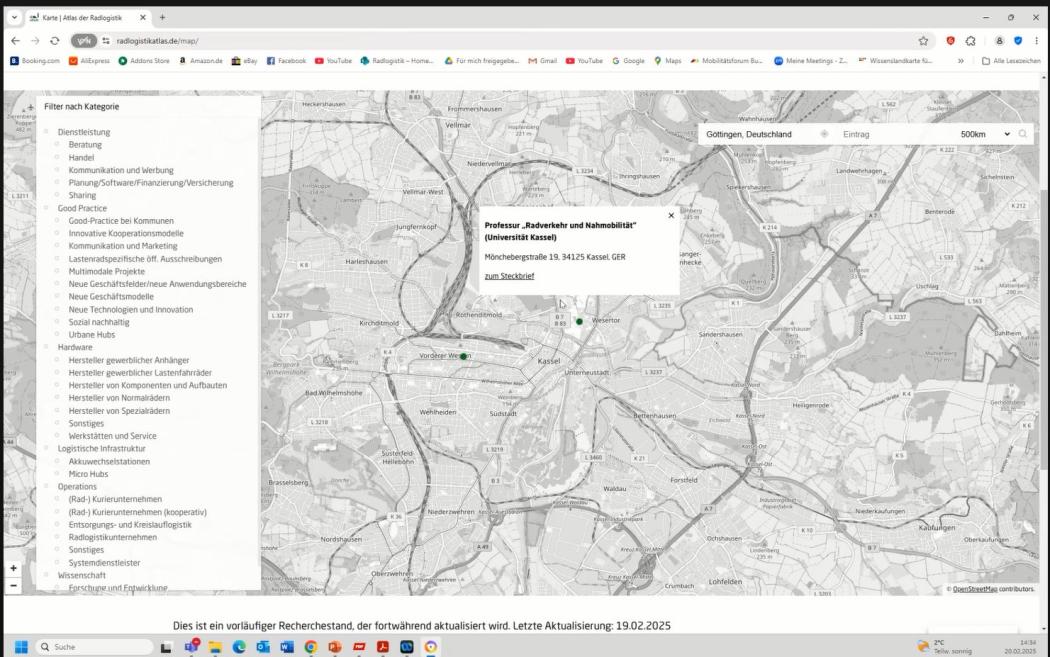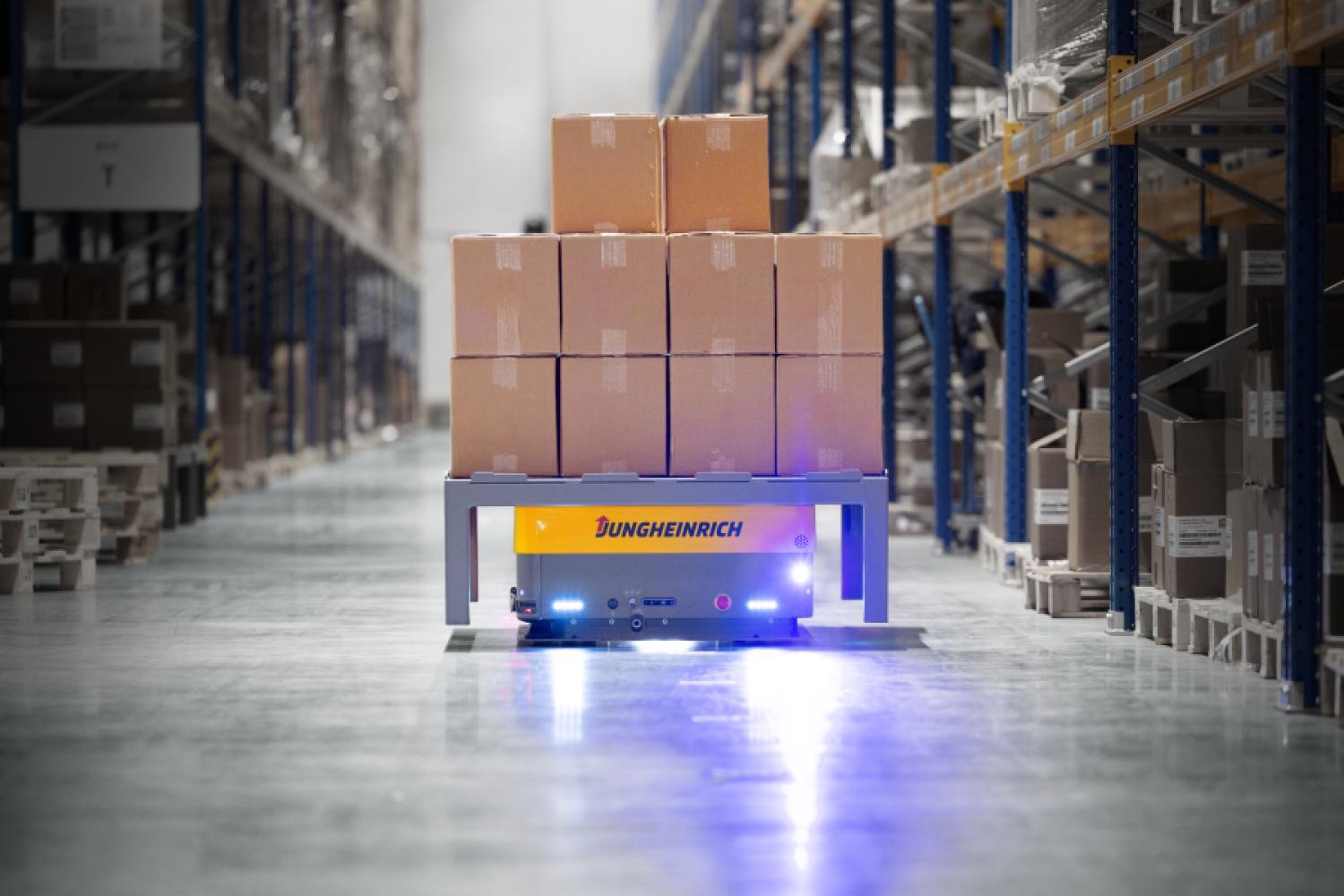As part of the iKnowRadlogistik project funded by the Federal Ministry of Transport under the umbrella of the Mobility Forum Bund at the Federal Office for Logistics & Mobility, industry players have developed a knowledge platform intended to showcase the diverse potentials and ecosystem of bicycle logistics on a map of Germany. The aim is not to replace consulting services but to provide inspiration, explained project manager Luise Braun from the German Bicycle Logistics Association. The goal is to create a platform and enable the bundling and transparency of existing knowledge regarding bicycle logistics, added Franziska Wouters from the co-responsible House of Logistics & Mobility HOLM. So far, there are significant knowledge gaps in municipalities, as an evaluation in the communities within the framework of the project has shown. After all, 17 percent of municipalities have a commercial traffic representative who can also institutionally support activities such as bicycle logistics. According to the study, the reason why the rediscovered means of transport is still rarely used is due to the lack of capacities in the municipalities as well as the difficulty in assessing the potential and applications of cargo bikes.
Interactive Atlas Provides Inspiration
The resulting Atlas of Bicycle Logistics offers a comprehensive overview of bicycle logistics stakeholders, micro hubs, innovative approaches, as well as 24 successful practical examples or 420 entries related to stakeholders or relevant infrastructure from all over Germany, which can also be selected via an interactive map. This includes companies like the CEP bicycle logistics with bike trailers from Vemo in Bonn and Cologne, or construction site bicycle logistics with compact BAYK trikes at CityLog, which now functions in numerous cities. It also integrates 40 studies, manuals, or planning guides that can be accessed directly, such as those on micro depots and their planning and design, or on premiums and funding at various levels. The atlas thus serves as a valuable reference work for municipalities, companies, and all actors who want to explore the potential of bicycle logistics. "Municipalities in Germany are faced with the challenge of planning sustainable logistics for tomorrow. Here, bicycle logistics and cargo bikes offer a sustainable solution for urban logistics and are gaining significance," argue the responsible parties. Up to one-third of commercial traffic in the city could be handled by cargo bikes, the responsible parties outlined. The bikes are flexible, fast, space- and emission-efficient, and not least, can be operated without a driver's license.
Municipalities in a Central Role
During a webinar on the atlas, the central role municipalities play in establishing bike logistics was also highlighted, as they ideally provide the spaces or even facilities for successful projects in this area. The recommendation from the officials involved in the atlas project from the transport transformation agency cargobike.jetzt generally leans towards a multi-user concept, as it can appeal to a wider customer base and ensure a certain level of facilities, including social spaces, security, and infrastructure such as electricity or Wi-Fi. Own services like cargo bike maintenance could also be integrated this way. Spatial separation is important for use by multiple companies. Alternatively, the organization through "neutral third parties," such as DB Smart City, is conceivable. Here, for the DB subsidiary, it is also about giving existing empty spaces a meaningful use. They are generally open to inquiries from bike logistic companies or municipalities, as promoted by Jan Kruska, Project Manager Micro Depots, Smart City | DB. The railway subsidiary also sees itself as an initiator and catalyst, intending to hand over to local players once a location is successfully established.






